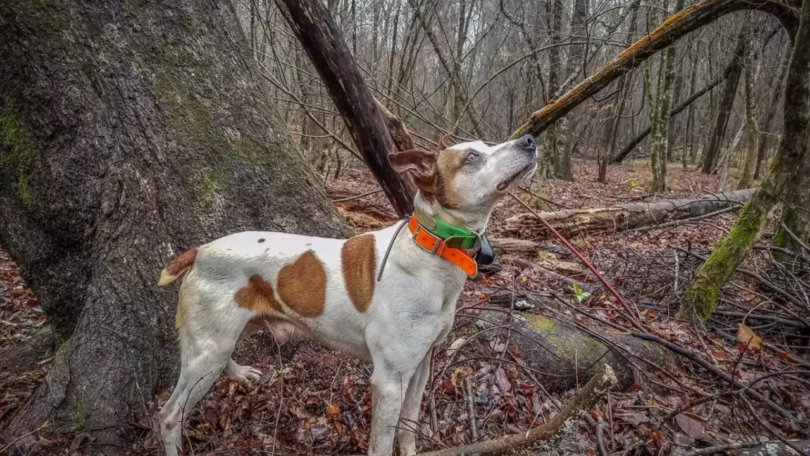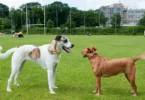Training a squirrel hunting dog is an art that requires patience, dedication, and a deep understanding of canine behavior. Whether you're working with a seasoned pro or a young pup, these expert tips will help you develop a skilled and reliable hunting companion. From basic obedience to advanced treeing techniques, this comprehensive guide covers everything you need to know to train your squirrel hunting dog for success in the field.
Understanding the Basics: Laying the Foundation
Before diving into specialized squirrel hunting techniques, it's crucial to establish a solid foundation of basic obedience and trust with your dog. This groundwork will make advanced training much more effective and enjoyable for both you and your canine partner.
1. Start with Core Commands
Begin by teaching your dog essential commands such as “sit,” “stay,” “come,” and “heel.” These basic instructions are vital for maintaining control during hunts and ensuring your dog's safety in various situations.
Expert Tip: Use positive reinforcement techniques, rewarding your dog with treats, praise, or play for correctly following commands. This builds a strong association between obedience and positive outcomes.
2. Develop a Strong Recall
A reliable recall is crucial for squirrel hunting dogs. Your dog must return to you promptly when called, even in the excitement of the hunt.
Training Exercise: Practice recall in increasingly distracting environments. Start in a quiet area and gradually move to more stimulating locations. Use a long lead for safety during initial training sessions.
3. Introduce Gunfire Gradually
Accustoming your dog to gunfire is essential to prevent gun shyness, which can severely hamper hunting performance.
Step-by-Step Approach:
- Begin with distant, muffled shots while your dog is engaged in a positive activity.
- Gradually decrease the distance and increase the volume over multiple sessions.
- Always associate gunfire with positive experiences, such as treats or play.
Honing Squirrel Hunting Skills: Specialized Training Techniques
Once your dog has mastered basic obedience, it's time to focus on the specific skills required for successful squirrel hunting. These techniques will help your dog develop the instincts and abilities needed to locate, chase, and tree squirrels effectively.
4. Scent Training: Developing a Keen Nose
A squirrel hunting dog's ability to track scent is paramount to their success in the field. Here's how to develop this crucial skill:
Scent Introduction:
- Use squirrel scent or actual squirrel tails to familiarize your dog with the target odor.
- Create scent trails by dragging a scented object along the ground, gradually increasing the trail's complexity.
- Reward your dog enthusiastically when they successfully follow the scent trail.
Expert Tip: Vary the age and strength of scent trails to mimic real hunting conditions. This helps your dog learn to track both fresh and older scents.
5. Treeing: The Heart of Squirrel Hunting
Teaching your dog to locate and signal treed squirrels is a cornerstone of successful hunting. Here's how to develop and reinforce this behavior:
Treeing Exercises:
- Use a squirrel pelt or scented toy attached to a long pole.
- “Plant” the lure in a tree, allowing your dog to see you do this initially.
- Encourage your dog to find and bark at the lure.
- Gradually make the exercise more challenging by hiding the lure when your dog isn't watching.
Reinforcement Technique: When your dog successfully trees and barks at the lure, provide enthusiastic praise and a high-value reward. This positive association will strengthen their treeing instinct.
6. Developing Stamina and Endurance
Squirrel hunting often involves covering significant distances and navigating challenging terrain. Building your dog's stamina is crucial for successful, enjoyable hunts.
Endurance Training:
- Gradually increase the duration and intensity of exercise sessions.
- Incorporate varied terrain in your training routines, including hills and dense underbrush.
- Use games like fetch or frisbee to make endurance training fun and engaging.
Expert Tip: Monitor your dog closely for signs of fatigue or overheating during training. Always provide plenty of water and rest breaks.
7. Teaching Restraint and Patience
While enthusiasm is valuable in a hunting dog, teaching restraint is equally important. Your dog should learn to wait calmly until given the command to hunt.
Restraint Exercises:
- Practice “stay” commands in exciting environments.
- Use a release word (e.g., “hunt” or “find it”) to signal when your dog can begin searching.
- Reward calm behavior and ignore or redirect overexcitement.
Advanced Techniques: Refining Your Dog's Skills
As your dog progresses, these advanced techniques will help polish their skills and address common challenges in squirrel hunting.
8. Silent Tracking
While some hunters prefer a vocal dog, others value silent tracking. If you prefer a quieter approach, here's how to encourage silent pursuit:
Training Method:
- Use a verbal cue like “quiet” or “hush” when your dog vocalizes during tracking.
- Reward silent tracking with treats or praise.
- If your dog barks, calmly interrupt the behavior and redirect their focus to the scent trail.
9. Multiple Tree Training
Teaching your dog to handle situations where a squirrel jumps from tree to tree is crucial for successful hunts.
Simulation Exercise:
- Set up multiple “squirrel stations” (scented objects) in different trees.
- Lead your dog to the first station and allow them to tree.
- After a short period, move the scent to another nearby tree.
- Encourage your dog to find the new location.
Expert Tip: Gradually increase the distance between trees and the complexity of the scent trail to challenge your dog's tracking abilities.
10. Handling False Trees
Sometimes, dogs may “false tree,” barking at a tree where there's no squirrel. Here's how to address this issue:
Correction Technique:
- When your dog false trees, calmly approach and investigate the tree yourself.
- If no squirrel is present, use a command like “no squirrel” or “empty.”
- Lead your dog away and encourage them to continue searching.
- Consistently reinforce this behavior to help your dog distinguish between true and false trees.
11. Water Training
Squirrels often use water features to throw off pursuing dogs. Teaching your dog to track through and around water is valuable:
Water Tracking Exercises:
- Create scent trails that cross shallow streams or ponds.
- Encourage your dog to follow the scent into and out of the water.
- Reward successful water crossings and scent recovery on the other side.
Safety Note: Always ensure water training is conducted in safe, shallow areas and supervise your dog closely.
Maintaining and Improving Skills: Ongoing Training
Training a squirrel hunting dog is an ongoing process. Even experienced dogs benefit from regular practice and skill refinement.
12. Off-Season Training
Keep your dog's skills sharp during the off-season with these activities:
- Regular scent work exercises using squirrel scents
- Simulated hunts in varied environments
- Obedience refreshers and advanced command training
13. Physical Conditioning
Maintain your dog's physical fitness year-round to ensure they're ready for the demands of hunting season:
- Regular exercise routines tailored to your dog's age and breed
- Swimming for low-impact endurance building
- Agility training to improve coordination and reflexes
14. Mental Stimulation
Keep your dog's mind sharp with puzzle toys, scent games, and varied training scenarios. A mentally stimulated dog is more responsive and eager to learn during hunting training.
Addressing Common Challenges
Even well-trained dogs may encounter difficulties. Here's how to handle some common issues:
15. Overexcitement and Loss of Focus
If your dog becomes overly excited and loses focus during hunts:
- Practice calm behavior in increasingly stimulating environments
- Use redirection techniques to refocus your dog's attention
- Incorporate more impulse control exercises in your training regimen
16. Reluctance to Enter Dense Cover
Some dogs may hesitate to enter thick underbrush. To address this:
- Gradually introduce your dog to denser cover during training
- Use encouragement and rewards to build confidence
- Consider using a lightweight protective vest to help your dog feel more comfortable in thick vegetation
17. Ignoring Treed Squirrels
If your dog loses interest in treed squirrels quickly:
- Increase the value of the reward for successful treeing
- Practice shorter, more frequent treeing exercises to build enthusiasm
- Use squirrel scent or visual lures to maintain your dog's interest during longer waits
Ethical Considerations and Responsible Hunting
As you train your squirrel hunting dog, it's important to emphasize ethical hunting practices:
- Teach your dog to retrieve downed game gently
- Practice and enforce shot selection to ensure clean, ethical harvests
- Respect property boundaries and hunting regulations
- Prioritize your dog's safety and well-being at all times
By following these expert training tips and maintaining a consistent, positive approach, you'll develop a skilled, reliable squirrel hunting companion. Remember that every dog is unique, so be prepared to adapt your training methods to suit your individual dog's personality and learning style.
With patience, dedication, and the right techniques, you and your canine partner will be well-equipped for successful and enjoyable squirrel hunting adventures.











Leave a Comment